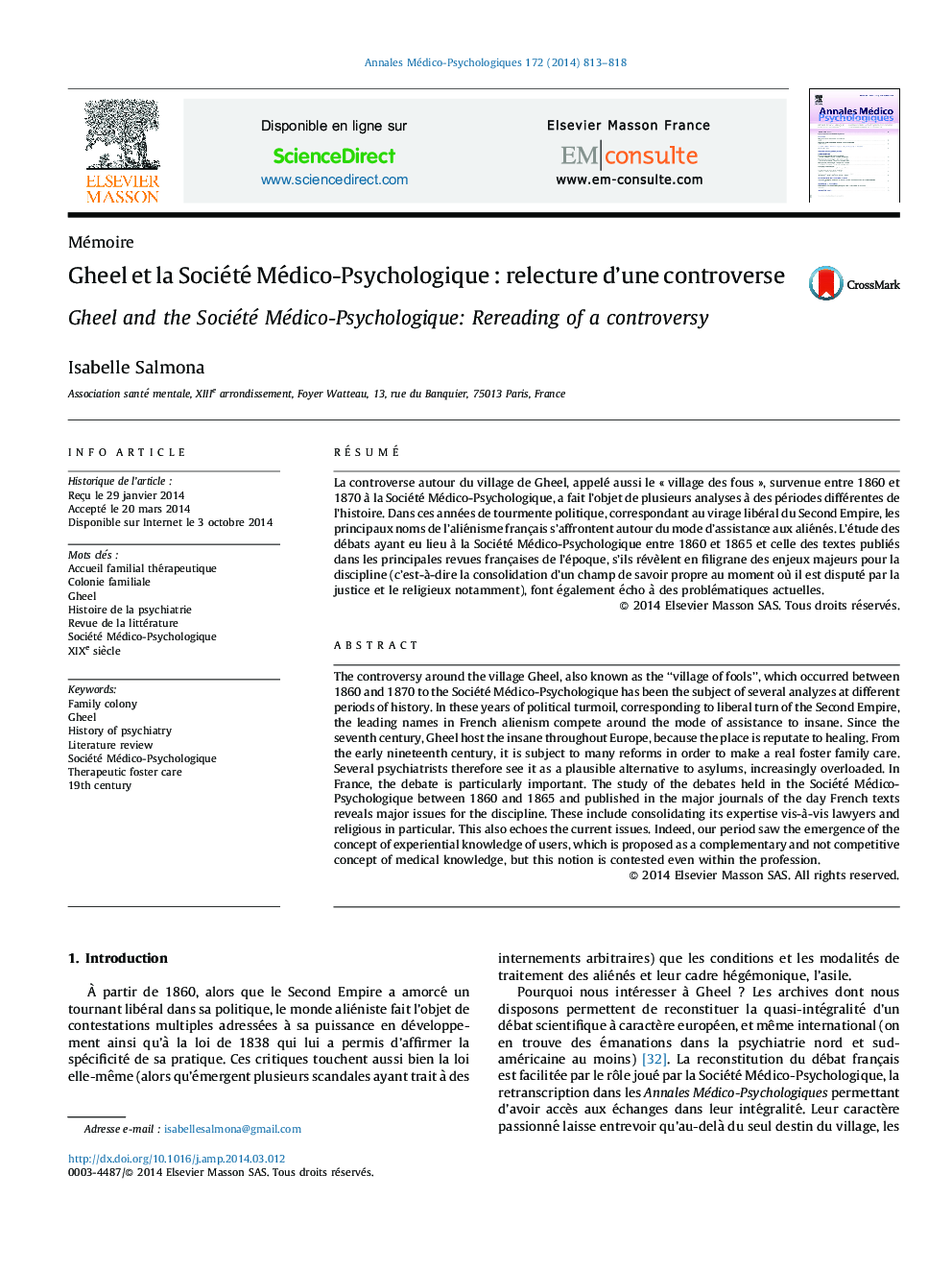| کد مقاله | کد نشریه | سال انتشار | مقاله انگلیسی | نسخه تمام متن |
|---|---|---|---|---|
| 314066 | 534567 | 2014 | 6 صفحه PDF | دانلود رایگان |

RésuméLa controverse autour du village de Gheel, appelé aussi le « village des fous », survenue entre 1860 et 1870 à la Société Médico-Psychologique, a fait l’objet de plusieurs analyses à des périodes différentes de l’histoire. Dans ces années de tourmente politique, correspondant au virage libéral du Second Empire, les principaux noms de l’aliénisme français s’affrontent autour du mode d’assistance aux aliénés. L’étude des débats ayant eu lieu à la Société Médico-Psychologique entre 1860 et 1865 et celle des textes publiés dans les principales revues françaises de l’époque, s’ils révèlent en filigrane des enjeux majeurs pour la discipline (c’est-à-dire la consolidation d’un champ de savoir propre au moment où il est disputé par la justice et le religieux notamment), font également écho à des problématiques actuelles.
The controversy around the village Gheel, also known as the “village of fools”, which occurred between 1860 and 1870 to the Société Médico-Psychologique has been the subject of several analyzes at different periods of history. In these years of political turmoil, corresponding to liberal turn of the Second Empire, the leading names in French alienism compete around the mode of assistance to insane. Since the seventh century, Gheel host the insane throughout Europe, because the place is reputate to healing. From the early nineteenth century, it is subject to many reforms in order to make a real foster family care. Several psychiatrists therefore see it as a plausible alternative to asylums, increasingly overloaded. In France, the debate is particularly important. The study of the debates held in the Société Médico-Psychologique between 1860 and 1865 and published in the major journals of the day French texts reveals major issues for the discipline. These include consolidating its expertise vis-à-vis lawyers and religious in particular. This also echoes the current issues. Indeed, our period saw the emergence of the concept of experiential knowledge of users, which is proposed as a complementary and not competitive concept of medical knowledge, but this notion is contested even within the profession.
Journal: Annales Médico-psychologiques, revue psychiatrique - Volume 172, Issue 10, December 2014, Pages 813–818